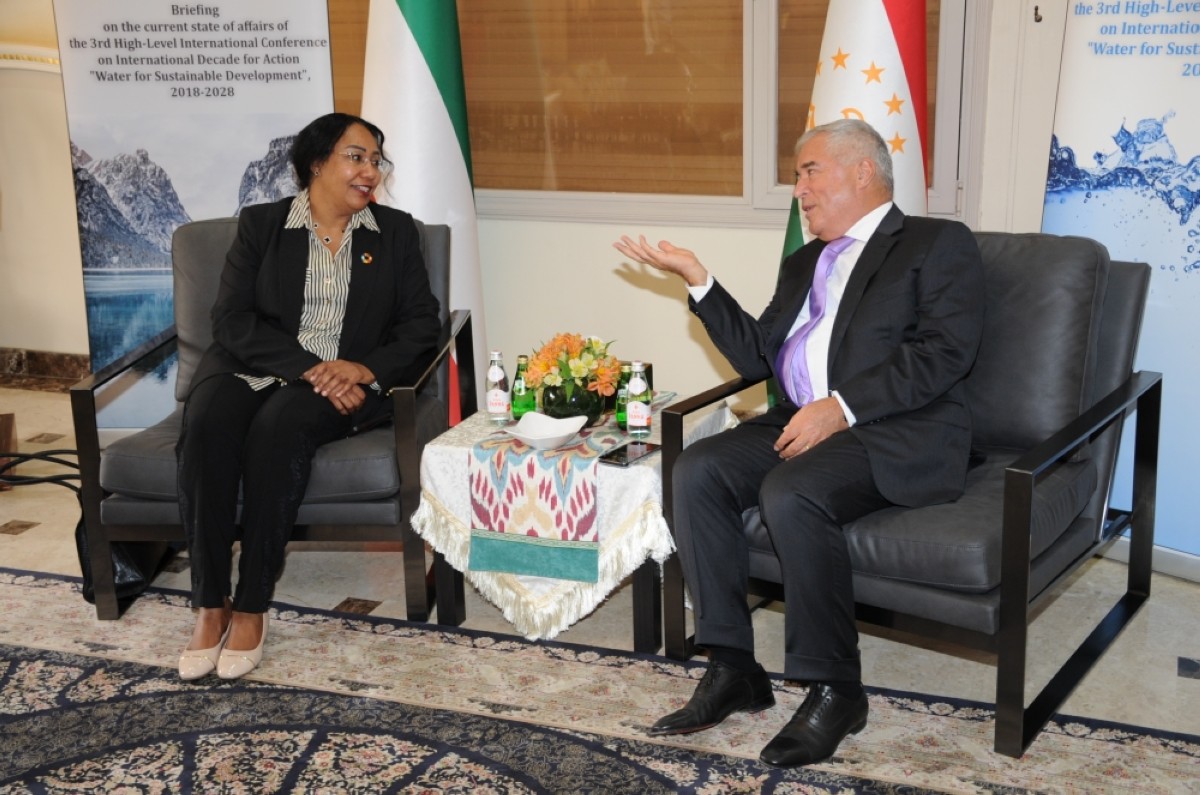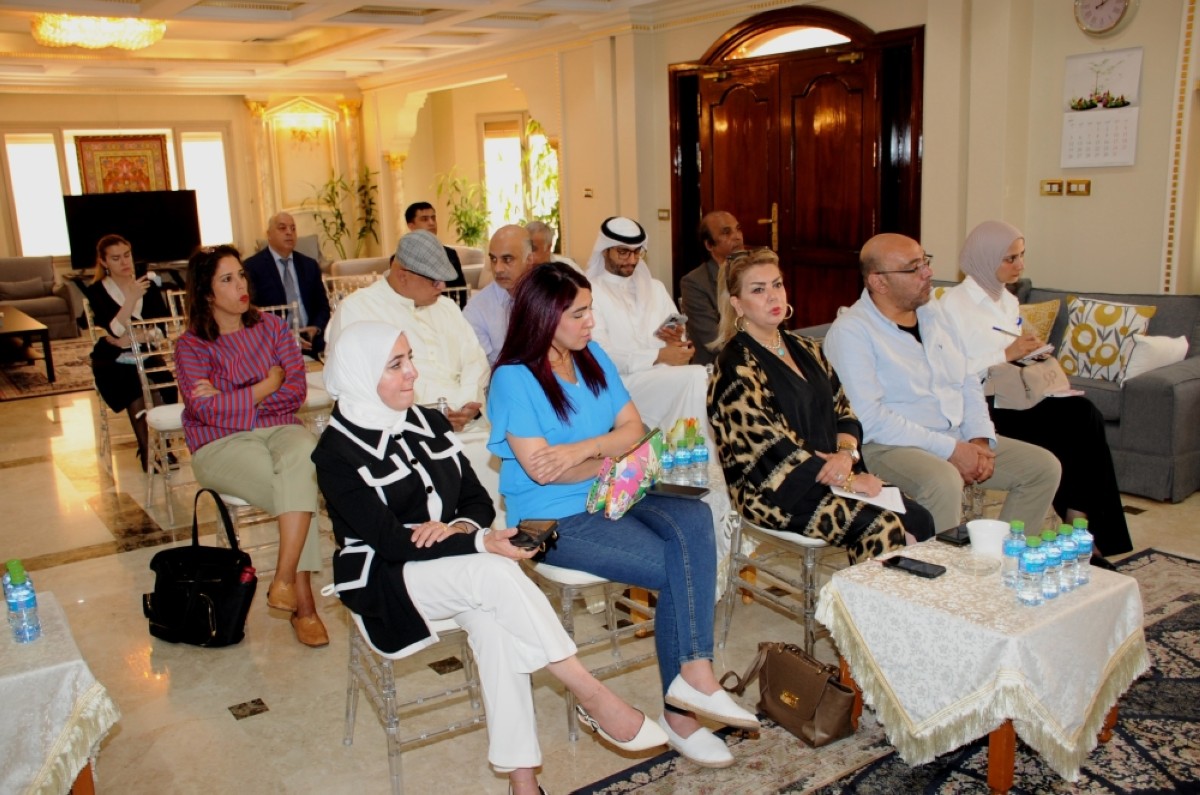KUWAIT: Ambassador of Tajikistan to Kuwait Zubaydullo Zubaydzoda unveiled a project to export freshwater from Sarez Lake in Tajikistan to Gulf countries and other areas facing water scarcity. This announcement was made during a meeting in collaboration with the United Nations Office in Kuwait, briefing on the current state of affairs of the 3rd High-Level International Conference on the International Decade for Action "Water for Sustainable Development,” 2018-2022. Notably, he mentioned Sarez Lake is an abundant source of freshwater, 61 kilometers long and 500 meters deep.
Additionally, he stated that Tajikistan, which accounts for about 60 percent of Central Asia’s water, and has among the lowest electricity tariffs in the region, aims to transmit electricity from the Rogun Hydropower Plant to neighborhood countries once it is completed, such as India, Afghanistan and Pakistan. This plant, which is still under construction, and located on the Vakhsh River, will feature six 600 MW power units with a total capacity of 3,600 MW, making it the most powerful hydroelectric plant in Central Asia.
Kuwait exempted from Tajik visa
Additionally, the Tajik ambassador said this strong relationship extends to the tourism sector, inviting visitors from Kuwait to explore the beauty of Tajikistan. He highlighted the convenience of travel arrangements, noting that Kuwaiti citizens enjoy visa exemptions, while expatriates in Kuwait can obtain visas at Tajikistan airports, and there is a direct travel route from Kuwait to Tajikistan.




Zubaydzoda, who is also the Dean of the Diplomatic Corps in Kuwait, highlighted Kuwait and Tajikistan’s strong commitment to fighting terrorism together in the upcoming International Conference on Combating Terrorism and its Financing, part of the "Dushanbe Process”. Scheduled for November in Kuwait, he stressed the importance of the initiative. "Our bilateral relations with Kuwait are crucial. We aim to strengthen our ties in all areas, especially in politics,” Zubaydzoda said, adding political discussions on this topic between the two countries will take place in Dushanbe in June.
Strengthening political ties
He discussed the upcoming Water for Sustainable Development conference in Dushanbe, scheduled for June 10-13, 2024. He highlighted its main aim — to boost collective efforts and back the implementation of commitments made in the UN Water Conference’s Water Action Agenda. This involves sharing best practices, fostering partnerships and emphasizing the role of water in sustainable development.
The conference seeks to raise awareness and build political support to speed up progress toward achieving the water-related goals of the 2030 Agenda, contributing to the 2024 High-Level Political Forum on Sustainable Development and the preparatory process of the UN Water Conference in 2026.
It will also provide a mechanism to encourage governments, the United Nations and all other partners to translate intentions into actions on the ground and catalyze new commitments to be registered in the Water Action Agenda. "It should be noted that there is almost no region in the world currently that does not experience water issues, and according to the analysis, this issue will become even more complex unless effective collective measures are taken,” added Zubayzoda.
Ghada Al-Taher, UN Resident Coordinator to Kuwait, expressed her gratitude to Zubaydzoda for this initiative. "The United Nations values its relationship with Tajikistan and its role in hosting the annual water conference, demonstrating its commitment to elevating water issues,” she said. She stressed the importance of accessing clean water as a fundamental human right, highlighting its pivotal role in sustainable development for all nations. She acknowledged the global challenges in this realm, pointing out that over 2.2 billion individuals endure hardships due to water scarcity, and climate change.
Combating water issues
Taher noted a growing trend among nations toward ensuring access to safe and clean water, alongside efforts to enhance sanitation services. "The effects of climate change are evident worldwide, leading to droughts or floods, both resulting in significant losses affecting food security and quality of life,” she remarked. She particularly referred to Kuwait, as she highlighted it among the countries affected by climate change.
Regarding the UN Office in Kuwait’s support for the Kuwaiti government in elevating water sustainability, Taher mentioned the UN’s role in providing consultations on water provision as an essential human right, which aligns with the UN’s mission in Kuwait, linked to the Sustainable Development Program and Kuwait Vision 2035, stressing cooperation between the two sides within this framework.
"Cooperation involves providing consultations to the Kuwaiti government through partnerships with specialized UN programs and organizations, such as the UN Development Program, Human Settlements Program and UN Environment Program. These organizations offer consultation not only on water but also on environmental matters like sandstorms, funded by the Kuwait Development Fund,” Taher highlighted. "Water consumption should be an individual responsibility, not just a governmental concern,” she noted, adding that raising awareness about the serious consequences of water scarcity and promoting the efforts to mitigate its effects due to climate change are essential.
